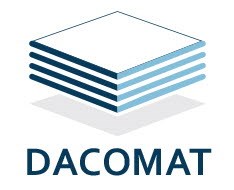DACOMAT at 2020 virtual Risø Materials Symposium
There was strong representation of researchers working on the DACOMAT project at the conference on Materials and Design for Next Generation Wind Turbine Blades

The Risø International Symposium on Materials Science is an annual conference which takes place at the Risø campus of the Technical University of Denmark (DTU) at Roskilde Fjord. The topic of the 2020 conference was Materials and Design for Next Generation Wind Turbine Blades, which is highly relevant to the work of the DACOMAT program. Therefore, a large number of DACOMAT partners took part – albeit from the comfort of their homes and offices!
Technical conference program
The conference spanned three and a half days from 7-10th September 2020, with a wide range of themed sessions. DACOMAT research was presented in a number of these such as Interface, Manufacturing and Recycling. This included invited papers (Bent Sørenson and Jim Thomason) as well as submitted papers from researchers and PhD students Peter Jenkins, David Bryce, Georgios Xypolias and Daan Cederløf. DACOMAT members were also invited to chair sessions: University of Strathclyde professor Jim Thomason hosted several talks on Recycling, while DTU’s Bent Sørenson and Stergios Goutianos chaired on Micromechanics and Interface respectively. A number of other members of the DACOMAT consortium took part as attendees, watching presentations and having the opportunity to engage in question and answer sessions.
Conference proceedings
Navigating COVID-19 restrictions
The enforced change from a normal conference at the Risø campus to an entirely virtual affair through Zoom was an unfortunate consequence of continued restrictions due to COVID-19. However, the participants from DACOMAT all felt the organisers at DTU did an excellent job of delivering the scientific program and fostering useful discussion between participants. It was also pleasing to hear that the virtual nature of the conference netted a significant saving in CO2 emissions: by avoiding air travel the 100 or so attendees saved a volume of CO2 roughly equal to the annual emissions of 6 EU citizens.
